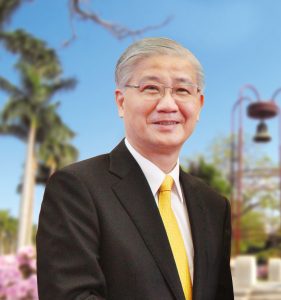
The president of a top university in Taiwan has announced he will resign from his post at the end of his first term in June.
President Pan-chyr Yang of National Taiwan University (NTU) has opted not to seek a second term as president given two recent investigations — one which concluded last month and one which is ongoing — into allegations of misconduct in papers he co-authored.
Despite being cleared of misconduct in the investigation conducted by his university, Yang felt that the scandal had left a stain on NTU’s reputation, which he hoped to restore by stepping down as president. Here’s more from Focus Taiwan:
[Yang] said that he couldn’t “bear to see the school continuing to be attacked over the incident.”
Nevertheless, he said that “it is time for me to shoulder responsibility” at the first school meeting after an investigation committee completed a review late last month.
To provide some background on the case, according to Focus Taiwan, NTU had launched an investigation in February after Yang and Kuo Min-liang—a vice president at Kaohsiung Medical University in Taiwan who is also affiliated with NTU—were accused of fraud. Specifically, the investigation explored concerns over problematic images in 17 papers, two of which were recently retracted for image duplications by Nature Cell Biology and the Journal of Biological Chemistry (which we covered here and here).
Later that month, the NTU committee cleared Yang of these allegations, Focus Taiwan reported:
The committee said that Yang being named as co-author in the questionable dissertations was appropriate, and the sections in which Yang was involved had no academic ethics violations.
Kuo, however, was less fortunate. According to Focus Taiwan, Kuo was dismissed over “violations of research ethics:”
The committee said it investigated a total 17 dissertations, including two withdrawn ones on cancer research submitted by Kuo’s research team to the Journal of Biological Chemistry in 2008 and Nature Cell Biology last year.
The committee said that Kuo “purposely” added problematic images to the papers and should assume the greatest responsibility.
In the meantime, several scholars in Taiwan believe that Yang’s offer to step down in June is not enough, asking instead that Yang “take leave immediately.” Liu Yuan-tsun, president of Soochow University, told Focus Taiwan that Yang should have left his post three months ago, describing Yang’s actions as “too slow, too late, and lacking wisdom:”
Liu said that if Yang left his administrative duties before an investigation began at the school, a lot of controversies would not have arisen.
In the meantime, another investigation—this one by Taiwan’s Ministry of Science and Technology and Ministry of Education—is currently underway, exploring allegations that Kuo accepted bribes to include co-authors on several of his papers (Yang is a co-author on four of those papers).
Although Yang was cleared of misconduct by NTU, Juan Li-jung, a research fellow at Academia Sinica, believes he bears some responsibility for the academic fraud Kuo committed over the last decade. Taipei Times laid out a brief timeline of their “close working relationship:”
Yang, who in 2007 became dean of the university’s College of Medicine, hired Kuo as the college’s vice dean that year, Juan said.
In 2009, Kuo was appointed as director-general of the Department of Life Science of the then-National Science Council — now the Ministry of Science of Technology — on a referral by Yang.
Yang was the second author of a 2006 paper published by leading journal Cancer Cell, while Kuo was the supervisor for the paper’s research.
As we reported last year, that paper was corrected in 2008 for image-related issues. The duo has collaborated on a range of other papers, some of which have been questioned in PubPeer.
In Taiwan, the government recently announced plans to establish a government agency to investigate allegations of misconduct, based on the U.S.’s Office of Research Integrity. The new office will not participate in the ongoing investigation involving Kuo and Yang.
Like Retraction Watch? Consider making a tax-deductible contribution to support our growth. You can also follow us on Twitter, like us on Facebook, add us to your RSS reader, sign up on our homepage for an email every time there’s a new post, or subscribe to our daily digest. Click here to review our Comments Policy. For a sneak peek at what we’re working on, click here.